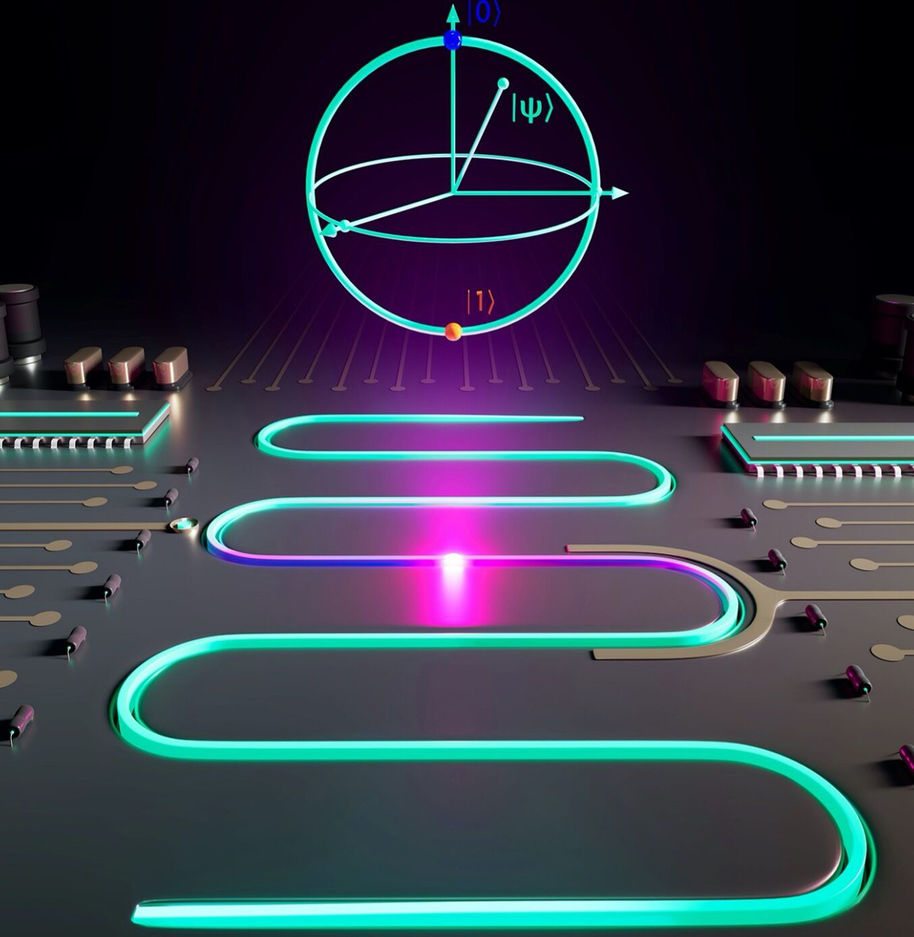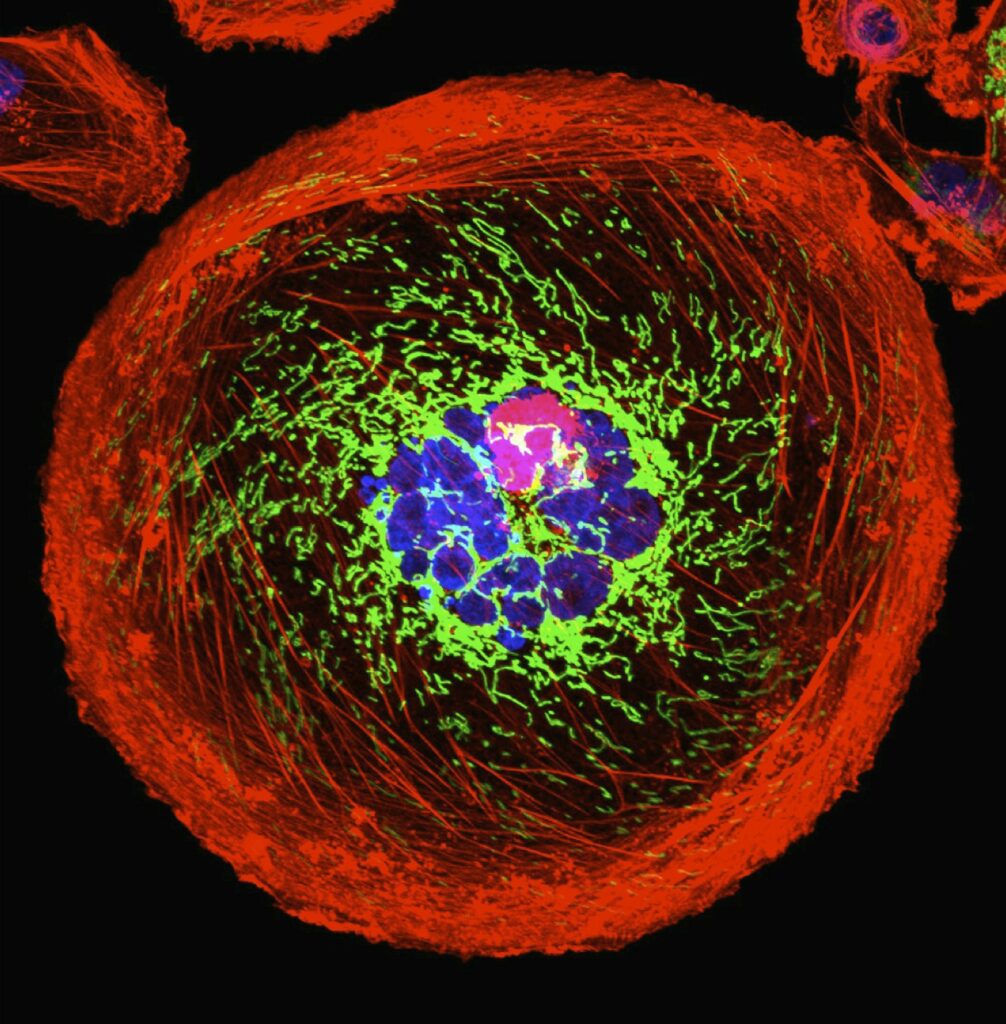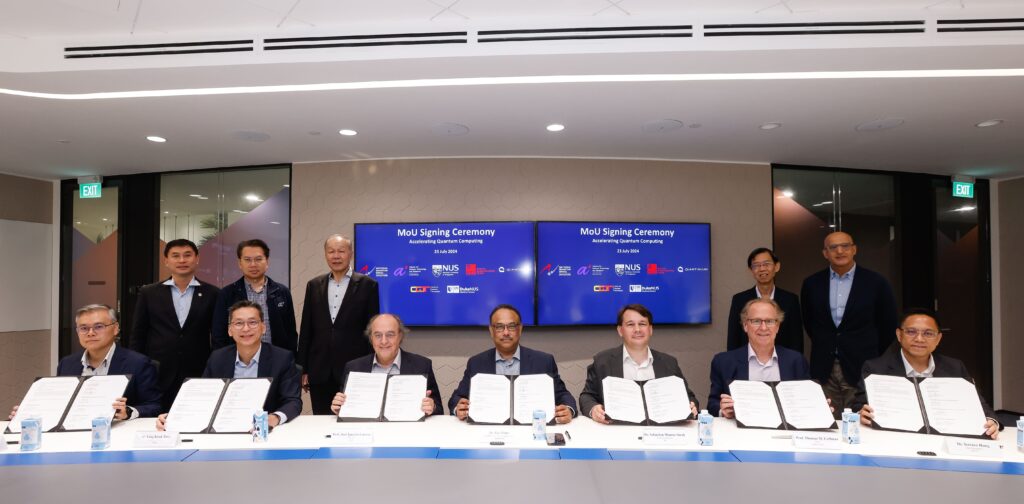Insider Brief
- Aalto University, IQM Quantum Computers and VTT Technical Research Centre scientists report on the unimon, a new superconducting qubit.
- The team has achieved the first quantum logic gates with unimons at 99.9% fidelity — a major milestone.
- Scientists say that because of the higher anharmonicity, or non-linearity, than in transmons, unimon operations are faster, leading to fewer errors per operation.
- Image: Artistic impression of a unimon qubit in a quantum processor. Credits: Aleksandr Kakinen.
PRESS RELEASE — A group of scientists from Aalto University, IQM Quantum Computers and VTT Technical Research Centre have discovered a new superconducting qubit, the unimon, to increase the accuracy of quantum computations. The team has achieved the first quantum logic gates with unimons at 99.9% fidelity — a major milestone on the quest to build commercially useful quantum computers. This pivotal piece of research was just published in the journal Nature Communications.
Of all the different approaches to build useful quantum computers, superconducting qubits are on the lead. However, the qubit designs and techniques currently used do not yet provide high enough performance for practical applications. In this noisy intermediate-scale quantum (NISQ) era, the complexity of the implementable quantum computations is mostly limited by errors in single- and two-qubit quantum gates. The quantum computations need to become more accurate to be useful.
‘Our aim is to build quantum computers which deliver an advantage in solving real-world problems. Our announcement today is an important milestone for IQM, and a significant achievement to build better superconducting quantum computers,’ said Professor Mikko Möttönen, joint Professor of Quantum Technology at Aalto University and VTT, and also a Co-Founder and Chief Scientist at IQM Quantum Computers, who was leading the research.
Today, Aalto, IQM and VTT have introduced a new superconducting-qubit type, the unimon, which unites in a single circuit the desired properties of increased anharmonicity, full insensitivity to dc charge noise, reduced sensitivity to magnetic noise, and a simple structure consisting only of a single Josephson junction in a resonator. The team achieved fidelities from 99.8% to 99.9% for 13-nanoseconds-long single-qubit gates on three different unimon qubits.

‘Because of the higher anharmonicity, or non-linearity, than in transmons, we can operate the unimons faster, leading to fewer errors per operation,’ said Eric Hyyppä who is working on his PhD at IQM.
To experimentally demonstrate the unimon, the scientists designed and fabricated chips, each of which consisted of three unimon qubits. They used niobium as the superconducting material apart from the Josephson junctions, in which the superconducting leads were fabricated using aluminum.
The team measured the unimon qubit to have a relatively high anharmonicity while requiring only a single Josephson junction without any superinductors, and bearing protection against noise. The geometric inductance of the unimon has the potential for higher predictability and yield than the junction-array-based superinductors in conventional fluxonium or quarton qubits.
‘Unimons are so simple and yet have many advantages over transmons. The fact that the very first unimon ever made worked this well, gives plenty of room for optimization and major breakthroughs. As next steps, we should optimize the design for even higher noise protection and demonstrate two-qubit gates,’ added Prof. Möttönen.
‘We aim for further improvements in the design, materials, and gate time of the unimon to break the 99.99% fidelity target for useful quantum advantage with noisy systems and efficient quantum error correction. This is a very exciting day for quantum computing!’ concluded Prof. Möttönen.
If you found this text helpful, be sure to check out more quantum computing news!
Source: Aalto
If you found this article to be informative, you can explore more current quantum news here, exclusives, interviews, and podcasts.




















